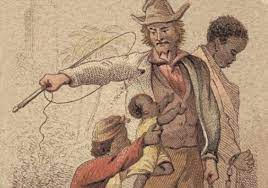The issue of Texas, slavery, and the Alamo is best clarified by the preponderance of white supremacy and class—race and capitalism. The cotton boom during the period was a lure to drive poor whites to Texas, but they came from the slave owning states and a country that taught white supremacy in churches and everywhere else for hundreds of years. However, the reduction of slavery to a purely economic issue is totally incomplete. The drive to become part of the gentlemen class of plantation owners was a driver of Anglos coming to Texas in the 1800s, but the energy that fed them was also white superiority. White supremacy indoctrinated whites, from birth to death, so that race and class cannot be separated. These two inequalities are married at the hip. Unfortunately, the uplift of whites in the economic system was based on skin color so that every drive for economic success was based on racism.
In the eyes of some, the Alamo became more sacred than a Buddhist Temple. This sacredness was pushed upon the public from 1836 to the present. Moreover, it always had a strong connection to the ideals of white supremacy and the institution of slavey. I don’t believe in sugar coating the horrible denigrations that so many Alamo historians have done either out of ignorance, racism, or fear of a white racist backlash that often involves physical threats to authors and activists.
Even the most well-intentioned historical researchers have been cowed by the holy crucifix of the invented stories that seek to deny the central theme of slavery and racism in Texas. Even the most progressive people grew up with a bevy of words that carry racial implications. Words carry powerful overt and covert political messages. For example, the descriptive use of the term “frontiersmen” implies hidden racial undertones. The word “settler” carries with it the notion of racist thieves stealing land and killing people to get it. Was the home of Native Americans ever a “frontier”? To Anglos, and those intent on removing the native population from their ancestral homelands, the term “frontiersman” became a badge of honor that had a genocidal connection. The noun “settler” also became tainted with invasions, genocide, and killers. Economic success was based on ethnicity, white supremacy, and not just on economics and the rise of cotton production.
The defenders of the white supremacy machine depend on fake history. They seek to explain that having three branches of government, with no mention of slavery or racism, as a God send to mankind and womankind. The purposeful hiding of slave owner interests is what they want us to ignore as they brush over the contaminated dirt of western democracy poisoned by racism. It is easier to reduce the story of the white settlers coming to Texas to economics. Over the years historic bullying has been used to force fabrications into peoples’ minds by using physical threats and other methods of harassment and intimidation.
Juan Seguin and Antonio Navarro were both pro-slavery men as was the Anglo leadership. Understanding why these prominent Tejanos (who were really white or wanted to be white) supported the Anglo slavery position is important. They were not just Tejanos supporting the white position any more than true abolitionists were inside the Alamo. They supported slavery as did Travis and Crockett. It is a problem when any historian attempts to deny the power of white supremacy as a central driving force. The truth needs to be told and I will do that in an upcoming book I wrote.









